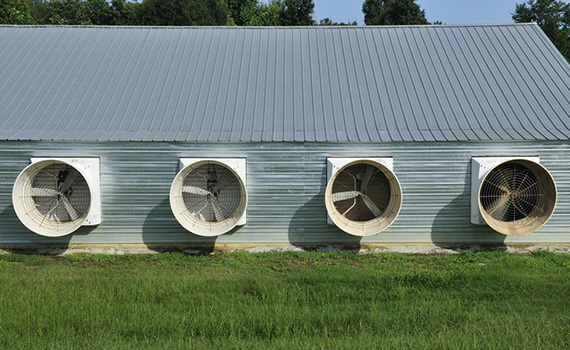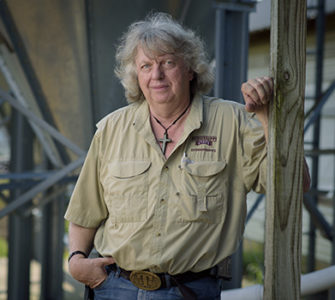Temperature, relative humidity, bird size affect broiler-house ventilation
Optimal air quality in tunnel-ventilated broiler houses is a function of temperature, relative humidity, bird heat production and air velocity, according to new research conducted at the University of Georgia and funded by the US Poultry and Egg Association.
Bird heat represents 97 percent of the total heat production in a broiler house even during hot summer weather. The study found that varying the air speed by as little as 100 feet per minute could impact production levels. Increasing air speeds coupled with excessive evaporative cooling could result in excessive bird heat loss and potential stress.
Sensible and latent heat loss were affected by air velocity, bird size, evaporative cooling and day/night cycles.
Posted on August 10, 2015

















